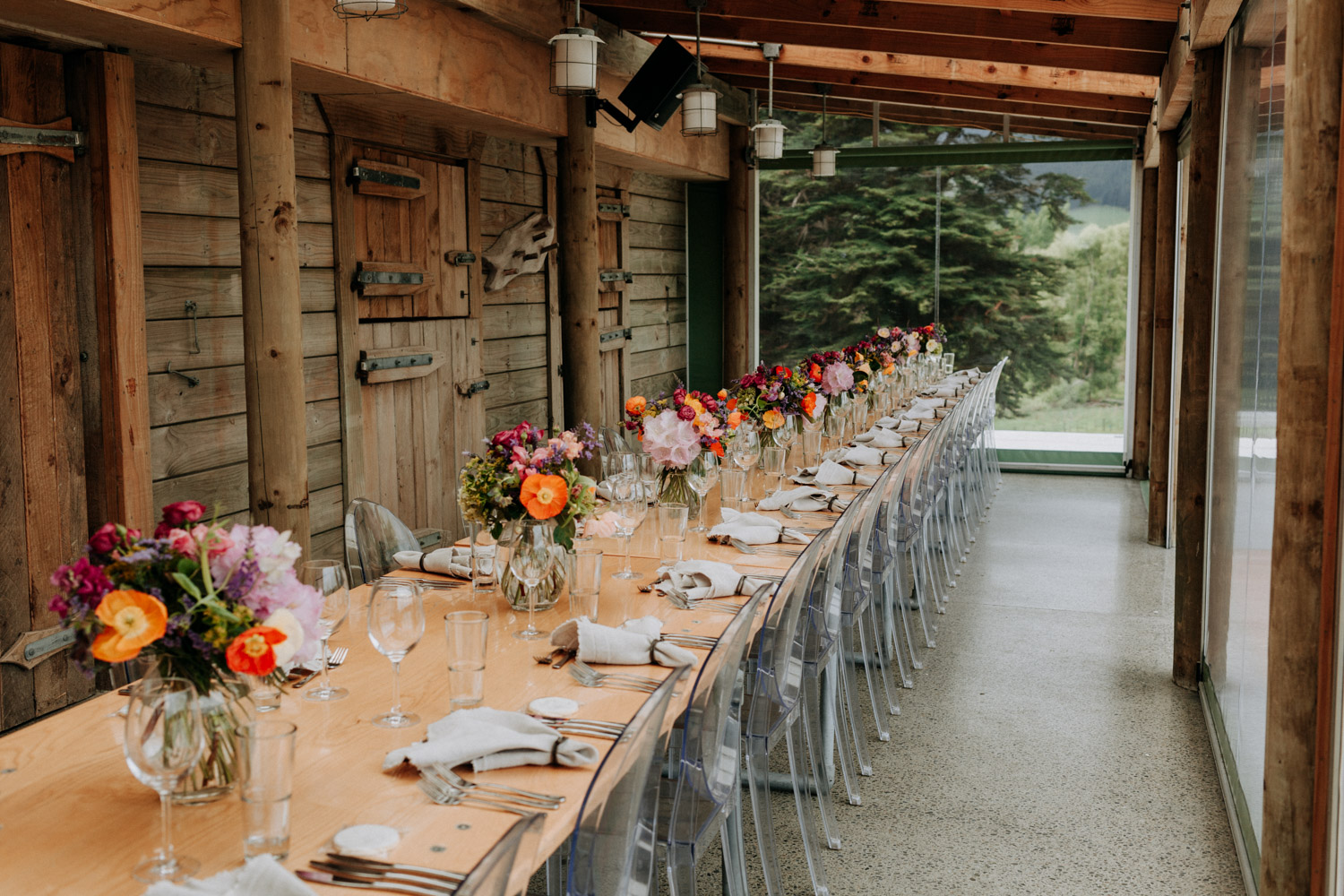Assigned seating at your wedding isn’t mandatory, but most couples will decide to have a seating plan for a number of reasons. You want to make it easier for your guests and group people where it makes sense. If your reception is providing a plated dinner service your coordinator may ask for a seating plan as a requirement for their staff.
Start with a lay out of how your tables will look and how many people they will sit. Your venue should be able to suggest the most appropriate layout for your number of guests. Typically you can fit more guests on rectangular tables and it makes it easier for guests to talk to other tables.
Place your parents next. Traditionally, parents on both sides will sit together, along with grandparents. This is a chance for families to share how happy they are for you. Sometimes, this arrangement doesn’t work depending on their relationships, so you may need to consider multiple tables for family members.
Once you have finalised who is attending you can start grouping people together. You can create groups based on how you know each other, for example: high school friends, work friends, cousins and other family members. Consider your guests ages, backgrounds and interests, so they have lots to talk about. You will want to make sure there are some familiar faces at each table so no one feels left out or awkward.
Consider having a separate table for younger children (somewhere not too far away from their parents). You can make this fun and provide lots of activities to keep them entertained and happy.
Keep in mind your floor plan. Your bridal party will want the best seat in the house, while Grandparents may need easy access and won’t enjoy being too close to the band or loudspeakers.
Make it easy for guests to find their table by having a sign at the entrance and cards on their table. If you’re still not into the idea of assigned seating, consider assigned tables instead, that way guests can pick their own seats but within the right group.






